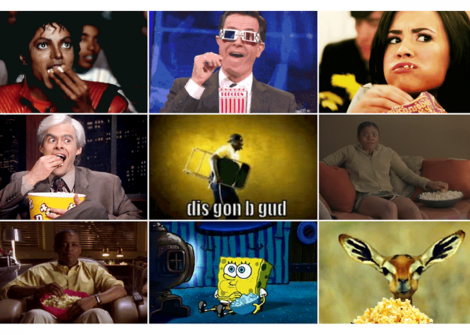Your podcast discovery platform
Curious minds select the most fascinating podcasts from around the world. Discover hand-piqd audio recommendations on your favorite topics.

piqer for: Global finds Technology and society
Prague-based media development worker from Poland with a journalistic background. Previously worked on digital issues in Brussels. Piqs about digital issues, digital rights, data protection, new trends in journalism and anything else that grabs my attention.
The Guilty Pleasure Of Watching Others On Facebook
“There is a man named Scott who I have never met, and he makes his wife breakfast in bed every day. Once a month, I load up Scott’s Facebook page and look through pictures of his latest dishes (…) It’s like Keeping Up With The Kardashians, except, you know, Keeping Up With Scott’s Wife’s Breakfast,” confesses Amelia Tait, a technology and digital culture journalist at the New Statesman.
According to Tait, everyone has a Scott, that is, someone who we follow on Facebook or Instagram as a guilty pleasure or indulgence. A Scott might be an acquaintance – like an ex-girlfriend or a former classmate – but it might as well be someone we’ve never actually met – a friend of a friend or just somebody that struck our attention for this or that reason. As Tait puts it, “thanks to social media, ordinary people’s personal lives have become a form of entertainment: more reality FB than reality TV.”
Although it is admittedly not a new premise, the New Statesman’s article still managed to catch my attention, particularly in the light of the Cambridge Analytica scandal and the growing “#QuitFacebook/#DeleteFacebook/#BoycottFacebook” sentiment. The article compares social media to a reality program, soap opera or spectator sport. This is an accurate analogy in my view: it’s hard to look away once you get hooked.
“While psychologists have long documented the parasocial relationships that develop between celebrities and fans (where one party is invested in another who doesn’t know they exist), it now seems similar relationships can develop between ordinary strangers,“ points out the author.
With testimonials from both those watching and those being watched, the article is a stirring tale of trivialization, contempt, shame and double-standards. Whether you ever kept somebody on your Facebook friend list merely for “entertainment” or not, here's something to think about: if someone puts their life online, is it yours to look at? Is it just a harmless bit of fun or is it stalking?
Stay up to date – with a newsletter from your channel on Technology and society.
